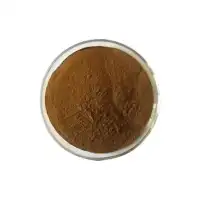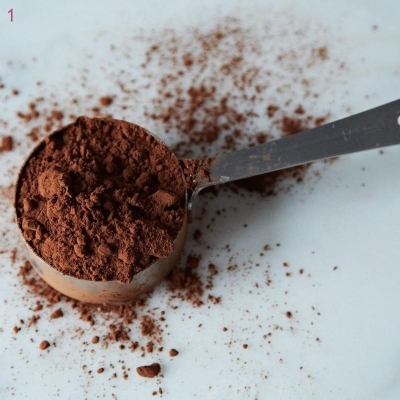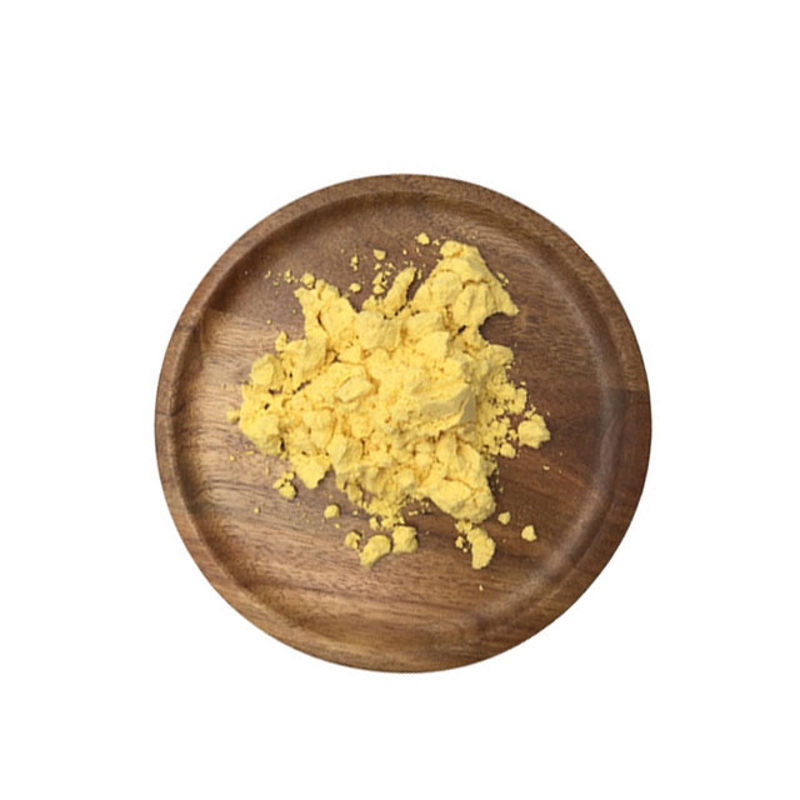New research: Cymbidium flower bud extract may be able to treat autism
-
Last Update: 2014-11-19
-
Source: Internet
-
Author: User
Search more information of high quality chemicals, good prices and reliable suppliers, visit
www.echemi.com
New members of autism therapy are all chemical compounds extracted from broccoli buds Preliminary studies have found that the extract appears to improve young people's social skills But scientists warn that preliminary results are not reliable enough The extract contains a large amount of sulforaphane, a compound that fights oxidative stress, inflammation and DNA damage, all of which are linked to autism Sulforaphane can also cause "heat shock response", which is the defense mechanism of cells against extreme temperature Some autistic children have improved their behavior after a fever This led Andrew Zimmerman, a professor of pediatric clinical medicine at the University of Massachusetts School of medicine, to wonder if sulforaphane could eliminate some of the symptoms of autism Zimmerman worked with Paul Talalay, who discovered sulforaphane 25 years ago and founded Brassica protection products in Baltimore to sell products containing broccoli extracts Talalay acknowledges that sulforaphane is just one component of the extract, which also contains a large number of other compounds The team brought together 40 autistic patients aged between 13 and 27, 26 of whom received a daily dose of the extract for 18 weeks The rest received daily placebo The experiment was conducted in secret, meaning that participants and their families, as well as researchers, did not know what each of them ate According to the records of doctors and their families, those who took the extract had significantly improved some of their abilities, such as the ability to communicate with others and oral expression These improved abilities disappeared within four weeks after treatment The group who took the placebo did not improve in any way These findings suggest the potential of using the extract to treat autism, but the researchers caution against exaggerating the effect "I want to stress to people that this study needs to be repeated before it can be proven to be effective," Zimmerman said Some independent researchers agreed, pointing out that the control group had an unusually small placebo response John Jay Gargus, director of the center for autism research and treatment at the University of California, Irvine, said: "there is usually a 20-25% increase in placebo use." Placebo can interfere with gut hormone secretion and the effect of autistic antidepressants "What's striking is that the placebo didn't work at all in this experiment," said Gargus In any case, the study opens a new door for autism treatment Judith miles, Professor of child health at the University of Missouri, who was not involved in the study, said: "this is a great exploratory study Turn the research direction to the physiological or cellular mechanism of autism symptoms " The researchers conducted a questionnaire survey of parents to evaluate the behavior of patients: abnormal behavior checklist, which measures irritability, lethargy, stereotypical behavior and hyperactivity, social responsiveness They also used Clinical Global Impressions scale to determine the severity of autism They used measurement baselines and repeated tests to test them on the fourth, tenth, eighteenth and fourth week after they participated in the experiment According to the test results of Clinical Global Impressions scale, at the time of participating in the experiment for 18 weeks, the participants receiving the treatment of broccoli extract had a significant improvement in their social ability and language communication ability These are two aspects of autism that cannot be treated by current treatment methods "He didn't change the diagnosis, but he changed a lot of characteristics," Zimmerman said 60% of the treatment group improved significantly in the abnormal behavior checklist test, compared with 20% in the placebo group In the social responsiveness scale, 35% of the members in the treatment group improved significantly, while the placebo group did not All the test results returned to the original level 4 weeks after the treatment Although members of those treatment groups received an average of four pounds of extract over the course of 18 weeks, none of the participants had adverse reactions At the end of the study, two members of the treatment group developed seizures They all had a history of seizures before they took part in the experiment, but they didn't tell the researchers Jeremy Veenstra Vander weele, an associate professor of psychiatry at Columbia University in New York who was not involved in the study, said: "I think the results are very attractive I like the potential treatment with minimal side effects " But he and others wonder whether this will happen after other experiments or more people with autism are involved One of the doubts is that 80% of the participants have historical experience of improving some abilities after a bout of fever The survey estimated that 30% of autistic patients will have "fever effect" by the end of the month "This makes the choice of participants less representative," Veenstra vanderweele said What's more, the control group of the extract chose a placebo pill that had been tested in hundreds of autistic patients in previous experiments The results of the study are still fascinating and need to be tested in more autistic patients later.
This article is an English version of an article which is originally in the Chinese language on echemi.com and is provided for information purposes only.
This website makes no representation or warranty of any kind, either expressed or implied, as to the accuracy, completeness ownership or reliability of
the article or any translations thereof. If you have any concerns or complaints relating to the article, please send an email, providing a detailed
description of the concern or complaint, to
service@echemi.com. A staff member will contact you within 5 working days. Once verified, infringing content
will be removed immediately.







